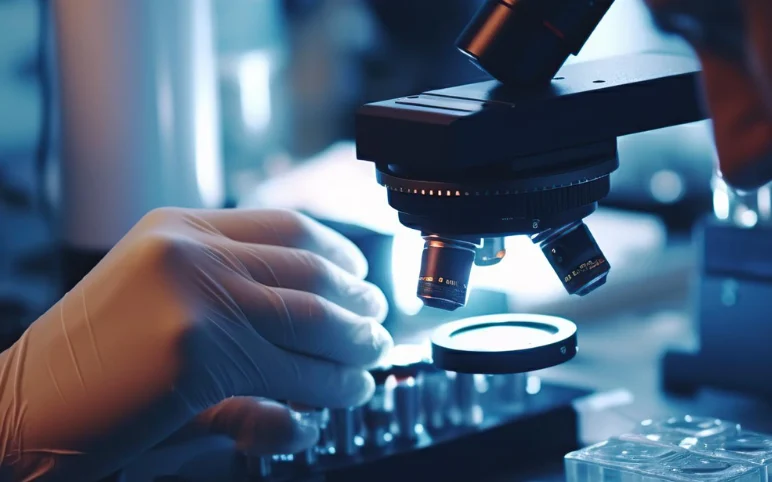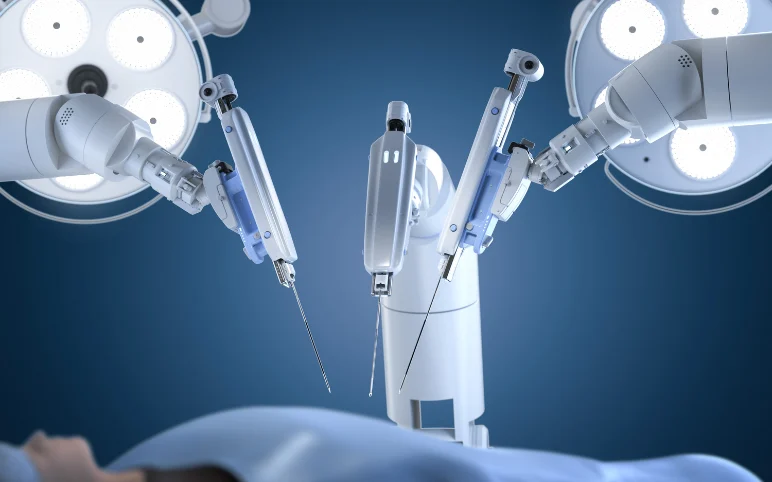Zimmer Biomet Announced Japan PMDA Approval of World’s First Iodine-Treated Total Hip Replacement System
On September 25, 2025, Zimmer Biomet Holdings, Inc., a global leader in medical technology, announced that Japan’s Pharmaceutical and Medical Devices Agency (PMDA) had approved the iTaperloc® Complete and iG7™ Hip System. These implants became the first orthopedic devices worldwide to feature Iodine Technology, which inhibits bacterial adhesion on the implant surface.
Periprosthetic Joint Infection (PJI), a serious complication following total joint arthroplasty (TJA), was noted as one of the leading causes of revision surgeries. PJI was estimated to occur in 1–2% of primary TJA procedures and carried significant risks, with a five-year mortality rate (11%) comparable to breast cancer and substantially higher than prostate cancer (1%).
“Iodine Technology represents a significant advancement in orthopedic implant design,” said Professor Hiroyuki Tsuchiya, Director at Yokohama Sakae Kyosai Hospital and Emeritus Professor of Orthopedic Surgery at Kanazawa University. Prof. Tsuchiya, who developed the technology, explained: “By integrating a controlled-release iodine layer through advanced anodization and electrophoresis, we created an implant that inhibits bacterial adhesion and biofilm formation during the postoperative period. This innovation combines simplicity and sophistication to help address the issue of PJI after total joint replacement.”
“The earlier-than-expected approval of iTaperloc Complete and iG7 Hip System in Japan further strengthens Zimmer Biomet’s comprehensive portfolio of infection management solutions, which spans prevention, detection, primary and revision products,” said Ivan Tornos, Chairman, President & CEO, Zimmer Biomet. “By equipping surgeons with advanced tools to identify and address infection risks throughout the continuum of care, we’re helping drive safer surgical outcomes. This milestone is the latest in our robust new product cycle and underscores our unwavering commitment to delivering first-to-world, transformative innovations that address the most meaningful challenges in musculoskeletal health.”
The iTaperloc and iG7 systems combined the proven clinical performance of the Taperloc Complete Hip System with the efficiency and effectiveness of the G7 Acetabular System, enhanced by Iodine Technology. Iodine, a biocompatible nutrient widely used as an antiseptic in medicine, was applied to the implant surfaces during manufacturing to prevent biofilm formation without contributing to the development of antibiotic resistance.
As per DelveInsight’s “Orthopedic Implants Market Report,” the global orthopedic implants market is estimated to grow at a CAGR of 5.46% during the forecast period from 2024 to 2030. The orthopedic implants market is slated to witness prosperity owing to factors such as the increasing prevalence of orthopedic diseases such as arthritis, osteoporosis, and others, a growing burden of the geriatric population, the rising number of road accidents associated and other injuries, and the increasing focus on improving the safety, affordability, and usability of orthopedic implants for people are further expected to result in the appreciable revenue growth in the orthopedic implants market during the forecast period from 2024 to 2030.
FluidAI Medical’s Origin™ Device Received FDA 510(k) Clearance, a Pivotal Milestone Redefining the Future of Data-Driven, Post-Operative Care
On September 26, 2025, FluidAI announced that the U.S. Food and Drug Administration (FDA) had granted 510(k) clearance for Origin™, an inline sensing system designed for real-time, bedside monitoring of surgical effluent in post-operative patients. The device was capable of functioning as a standalone system and was also planned for integration with FluidAI’s Stream Care™, an AI-assisted Surgical Expert Suite. Origin™ was engineered to connect seamlessly to standard surgical drains, enabling care teams to visualize real-time pH data at the bedside continuously.
The CEO of FluidAI, Youssef Helwa, framed the FDA announcement as a landmark milestone and a pivotal first step in advancing the company’s mission & expanding access to new markets: “This is a foundational step toward a future of data-driven, post-operative recovery. Origin™ will enable clinicians to observe subtle biochemical shifts that may herald optimal recovery or foreshadow complications in the near future. Its continuous sensing unlocks a new data layer, one that will enable our predictive models, and will pave the way for a new era of intelligent recovery, where patient care becomes proactive rather than reactive,” said Helwa.
Ricky Tjandra, Director for Research and Development, welcomed the FDA announcement, saying: “Receiving this clearance marks a significant step forward in surgical care, as it enables the continuous monitoring of surgical drainage to inform the development of smarter, more personalized healthcare algorithms. By tapping into this often-overlooked source of information, we’re not just creating an innovative device, we’re helping enable faster recoveries, fewer re-admissions, and ultimately, saving lives”.
As per DelveInsight’s “AI in Remote Patient Monitoring Market Report,” the AI in Remote Patient Monitoring market was valued at USD 1,926.51 million in 2024, growing at a CAGR of 27.13% during the forecast period from 2025 to 2032 to reach USD 13,126.80 million by 2032. The Artificial Intelligence (AI) in remote patient monitoring (RPM) market is experiencing robust growth, fueled by the rising cases of chronic conditions such as cancer, cardiovascular diseases, and lifestyle-related disorders. This growth is further supported by a surge in product development initiatives, increasing global investments in digital health infrastructure, and a growing emphasis on proactive, data-driven healthcare. These factors are expected to drive significant expansion of the AI-powered remote patient monitoring market during the forecast period from 2025 to 2032.
Sky Labs Launched CART BP, a Ring-Type Cuffless Blood Pressure Monitor
On September 25, 2025, Sky Labs announced the official launch of CART BP, a ring-type personal blood pressure monitor designed for everyday use.
Worn on the finger, CART BP enabled 24-hour blood pressure monitoring, including during sleep. The device had received approval from Korea’s Ministry of Food and Drug Safety (MFDS). It was developed based on the clinically validated technology of CART BP Pro, Sky Labs’ professional model previously adopted by hospitals as an ambulatory blood pressure monitoring (ABPM) device. Unlike conventional cuff-based home monitors, which make nighttime measurements difficult, CART BP allowed users to capture blood pressure readings continuously, including during sleep.
“CART BP brings clinically validated hospital technology into the hands of consumers,” said Jack Byunghwan Lee, CEO of Sky Labs. “Its key advantage lies in enabling management tailored to individual lifestyle patterns, including blood pressure during sleep.”
The device tracked morning blood pressure and provided a natural, seamless way to monitor changes throughout the day. By offering these insights, CART BP supported the early detection and prevention of severe cardiovascular and cerebrovascular conditions, such as stroke, cerebral hemorrhage, and myocardial infarction.
Users could monitor their blood pressure trends through a dedicated mobile app. The app’s “My Blood Pressure Calendar” feature displayed average values and fluctuations by time and date in easy-to-read graphs, helping users recognize patterns and manage their health systematically.
CART BP became available for purchase through Sky Labs’ official online store, Naver Smart Store, and Coupang. Customers first received a sizing kit to determine the correct ring size, after which the customized device was delivered.
According to DelveInsight’s “Blood Pressure Monitoring Devices Market Report,” the global blood pressure monitoring devices market is expected to increase from USD 2,842.32 million in 2024 to USD 6,086.50 million by 2032, growing at a CAGR of 10.01% during the forecast period from 2025 to 2032. The rising prevalence of hypertension and cardiovascular diseases, coupled with the growing shift towards home healthcare and remote patient monitoring, is significantly driving demand for blood pressure monitoring devices. Alongside this, continuous technological advancements, such as digital and wearable monitors, as well as increased product development activities by key players, are making devices more accurate, user-friendly, and accessible. Collectively, these factors are accelerating adoption and boosting the overall market growth.
Forward Science Partnered with Sage Dental to Introduce PerioStōm®
On September 29, 2025, Forward Science, a leader in dental care innovation, partnered with Sage Dental to launch PerioStōm®, a non-drug solution developed to protect oral mucosal tissue following iatrogenic procedures such as scaling and root planing (SRP).
PerioStōm® employed chitosan microspheres to create a protective barrier over the oral mucosa, supporting recovery after dental procedures. The FDA-cleared treatment offered a non-invasive option for patients experiencing oral mucosal irritation.
The collaboration between Forward Science and Sage Dental, which began in 2024, focused on evaluating the real-world effectiveness of PerioStōm® in patient care. Patients undergoing SRP were treated with a chitosan-based formulation, and their progress was monitored over a 30-day period. Key outcomes, including gingival health, bleeding on probing, and patient-reported results, showed significant improvements.
According to DelveInsight’s “Dental Consumables Market Report”, the global dental consumables market was valued at USD 31,982.17 million in 2023, growing at a CAGR of 7.87% during the forecast period from 2024 to 2030 to reach USD 50,280.79 million by 2030. The dental consumables market is experiencing remarkable growth due to factors such as the rising prevalence of dental disorders and increasing awareness among the population about the importance of dental care. Furthermore, the increasing number of people opting for dental aesthetics and cosmetic dentistry, the development of dental tourism in global markets, the growing demand for non-invasive dental procedures, and the rising demand for technologically advanced dental consumables will drive market growth worldwide. Additionally, the rise in spending on personal care, grooming, and aesthetics, along with the increasing number of product launches and approvals, the presence of various regional and local players in the market, and other factors will create a demand for dental consumables. Therefore, the market for dental consumables is estimated to grow at a substantial CAGR during the forecast period from 2024 to 2030.
iotaMotion Surpassed 1,000 Clinical Procedures Performed with iotaSOFT®-Defining a New Era in Cochlear Implant Surgery
On September 25, 2025, iotaMotion, Inc., a leader in robotic-assisted insertion systems for cochlear implantation, announced that it had surpassed 1,000 clinical procedures using the iotaSOFT® Insertion System. This milestone highlighted the growing adoption of the first and only FDA-authorized robotic-assisted cochlear implant insertion system in the United States.
The system provided surgeons with enhanced precision, consistency, and control during one of the most delicate steps in cochlear implant (CI) surgery. The iotaSOFT® Robotic-Assisted Cochlear Implant Insertion System advances surgical capabilities beyond the limits of the human hand, allowing slow, consistent, and controlled electrode insertion to preserve delicate intracochlear structures. Shown with the drive unit guiding the array, iotaSOFT had received FDA authorization for patients aged 12 years and older, broadening access to cochlear implantation, as fewer than 5% of the 60 million eligible patients worldwide had received implants.
By its second full year of commercialization, iotaSOFT had been adopted in more than 30 leading cochlear implant centers across the United States, as well as an active pre-market clinical study site in Zurich, Switzerland.
According to DelveInsight’s “Cochlear Implants Market Report”, the cochlear implants market was valued at USD 1.38 billion in 2023, growing at a CAGR of 9.92% during the forecast period from 2024 to 2030 to reach USD 2.43 billion by 2030. The cochlear implants market is experiencing substantial growth, primarily driven by the increasing prevalence of hearing loss & which incurs significant economic costs. Investing in cochlear implants & improving access to these devices, along with supportive reimbursement policies, is anticipated to further accelerate the overall growth of the cochlear implants market during the forecast period from 2024 to 2030.
Relief Cardiovascular Announced First-in-Human Procedures with World’s First Transcatheter Smart Implant for the Treatment of Congestion in Heart Failure
On September 30, 2025, Relief Cardiovascular, a private company developing transcatheter smart implants for heart failure treatment, announced the successful first-in-human use of the Relief System, the world’s first implant designed to both monitor hemodynamics and treat congestion in heart failure.
The pioneering procedures were performed in the Republic of Georgia as part of a feasibility study assessing the system’s safety. Implantations were carried out by Dr. Tamaz Shaburishvili, Dr. Levan Sulakvelidze, and Dr. Gigi Shaburishvili at Tbilisi Heart and Vascular Center, with support from Dr. Alex Rothman, Professor of Cardiology at the University of Sheffield. Patients were discharged home with the implanted Relief System automatically syncing with the cloud nightly.
The Relief System incorporated a pressure-guided active valve implanted in the vena cava to dynamically reduce cardiac preload and enhance renal vein flow as needed. By combining hemodynamic monitoring with adaptive therapy in a single transcatheter implant, the system introduced a new approach to heart failure management: direct, personalized decongestion through a data-driven therapeutic implant.
According to DelveInsight’s “Transcatheter Aortic Valve Replacement/Implantation Market Report”, the global transcatheter aortic valve devices market was valued at USD 3.23 billion in 2023, growing at a CAGR of 15.41% during the forecast period from 2024 to 2030 to reach USD 7.64 billion by 2030. The demand for transcatheter aortic valve replacement devices is primarily being boosted by the increasing prevalence of aortic stenosis disorder, rise in cardiovascular disorders, increasing demand for TAVR procedures, increasing prevalence of aortic regurgitation and the technological advancements about the transcatheter aortic valve replacement arena which are expected to grow in the product demand thereby contributing in the growth of the transcatheter aortic valve replacement devices market during the forecast period from 2024 to 2030.



